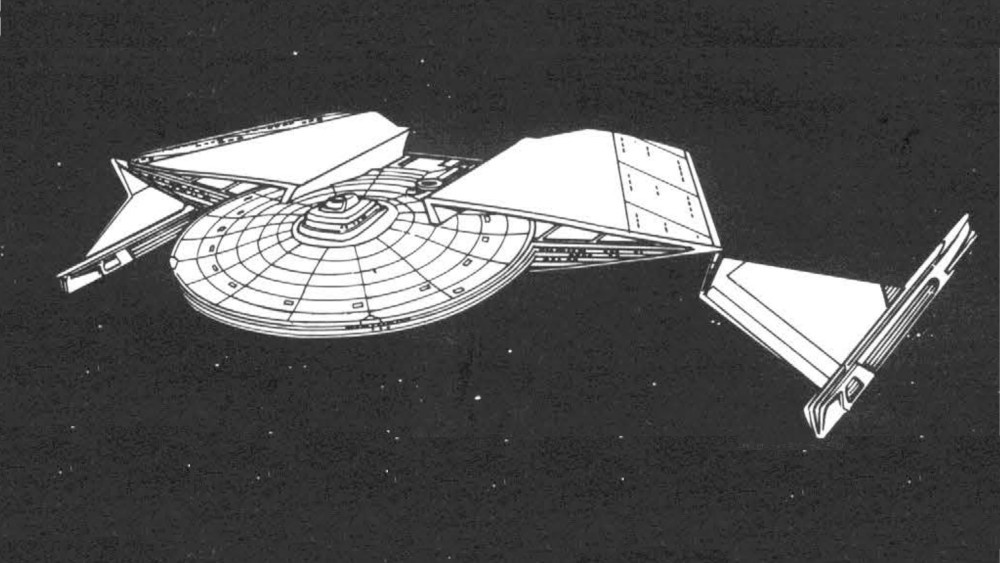U.S.S. Monson NCC-2392 (FASA)
While on a fact-finding mission within the Triangle on Reference Stardate 2/1910 (October 2219), the Federation Starship Monson, a Chandley class frigate, was overtaken by four Klingon K-23 Little Killer class destroyers. Eventually, two closed on the Monson and declared she had entered Klingon space, demanding she heave to and prepare to be boarded. The Monson's captain, realizing the Klingon demands were a prelude to an unprovoked attack, immediately raised shields and warned them off. The Klingons attacked, and the Monson returned fire. The Monson's aft torpedoes hit the lead Klingon ship's bridge, causing it to veer off course and into the path of the other vessels, whose fire crippled the damaged ship. Seeing this as an ill omen, the remaining Klingon vessels departed the area, leaving the crippled ship behind. The Monson approached the Klingon ship, accepted its surrender, and beamed aboard two Marine platoons before the ship exploded, killing all aboard. An after-action review determined that an unsuspecting Marine touched an unidentified device in the engine room, initiating an overload in the matter/antimatter mix chamber. The explosion caused no damage to the Monson and the device was never seen or reported again, leading to speculation that it was a jury-rigged self-destruct system.[1]
Because of this incident, Star Fleet policy stated that before Marines boarded an enemy vessel, a complete scan must be made of the vessel to determine if the destruct systems were in operation. If the scan was positive, the vessel's crew would be ordered to disarm any such devices, and should they fail to do so, the ship would be disabled and the enemy crew subjected to intense phaser stun. Only then could engineers and explosives disposal personnel beam aboard to disarm the device.[1]
Chandley class vessels
FASA Timeline
U.S.S. Blackheart NCC-2327 • U.S.S. Chandley NCC-2301 • U.S.S. East Anglia • U.S.S. Fife NCC-2572 • U.S.S. Hanson NCC-2309 • U.S.S. Monson NCC-2392 • U.S.S. Niwen NCC-2306
Notes and References
- ↑ 1.0 1.1 Brown, Forest G. (Author). Federation Ship Recognition Manual. Star Trek: The Role Playing Game. Book 2302 , Second Edition. Cover art by Dana Knutson. Illustrations by Dana Knutson and Robert Oswald. FASA Corporation. 1985.

